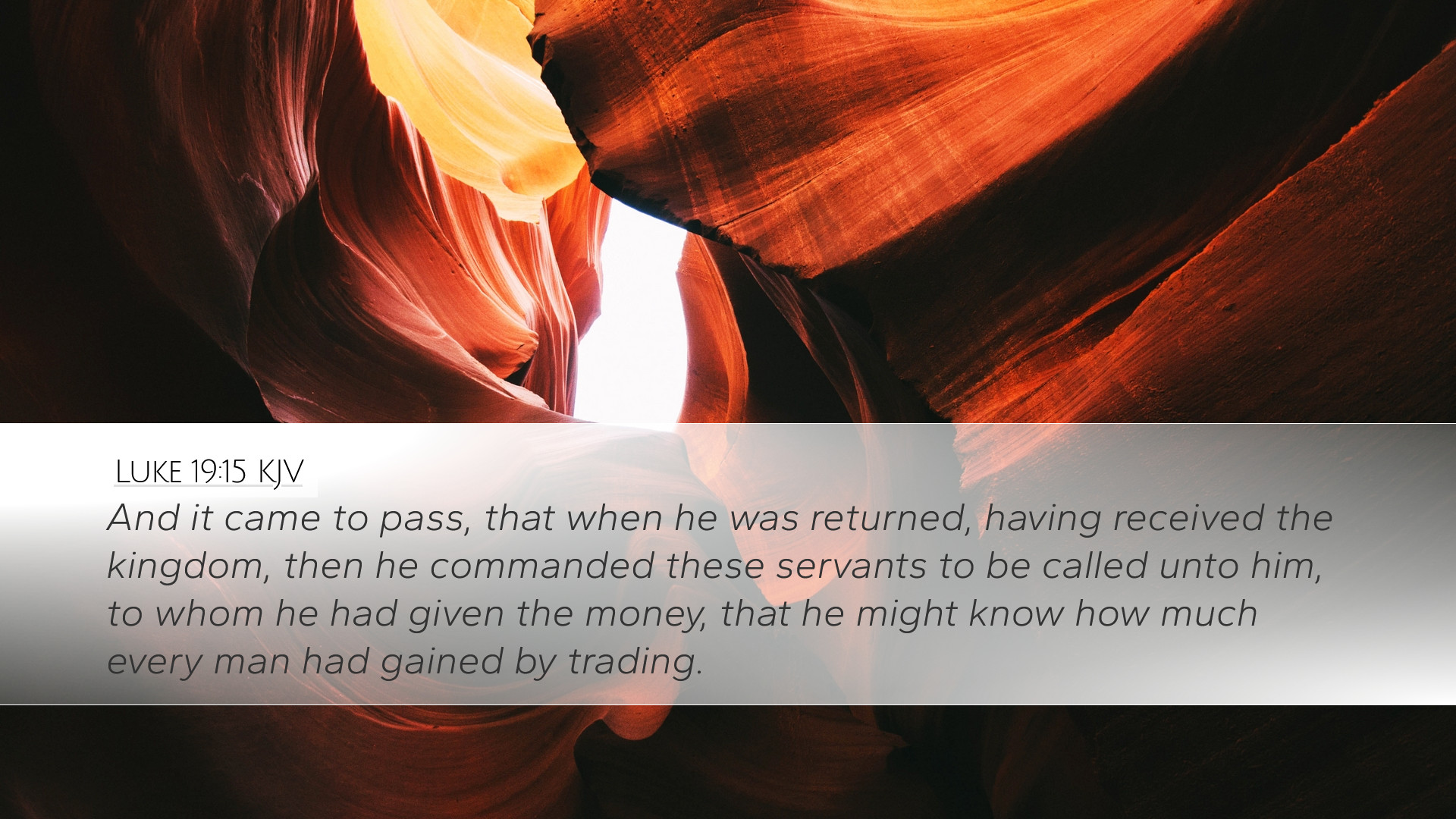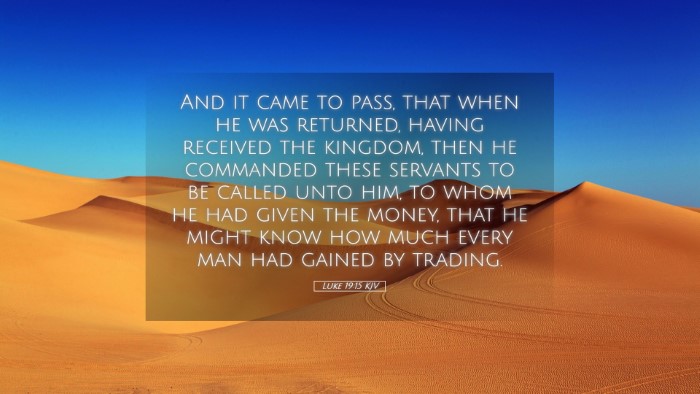Commentary on Luke 19:15
Verse: "And it came to pass, that when he was returned, having received the kingdom, then he commanded these servants to be called unto him, to whom he had given the money, that he might know how much every man had gained by trading."
This verse serves as a critical juncture in the parable of the ten minas, rich in theological and practical insights. The context sets forth a dual narrative of the nobleman who goes to receive a kingdom and the servants who are entrusted with the nobleman’s assets during his absence. Below, we summarize key insights from notable public domain commentaries.
1. Contextual Background
The setting of this parable is significant. It mirrors historical events of Jesus’ time, particularly the expectation of political upheaval and the ascension of leaders. Matthew Henry emphasizes that the nobleman's journey symbolizes Christ’s ascension and subsequent return for judgement.
2. The Nobleman and His Return
The nobleman’s return is a pivotal event symbolizing Jesus' second coming and the final judgement. As Albert Barnes notes, this return marks the moment for reckoning, highlighting the accountability of the servants. This foreshadows the future anticipation of the church awaiting Christ’s return.
3. The Responsibility of Servants
Each servant is given a mina, which represents opportunities and resources entrusted to them. Adam Clarke observes that this signifies the varied gifts and responsibilities given to believers. There is an expectation of productivity: “to know how much every man had gained by trading” implies active engagement in their calling and tasks.
4. The Expectation of Gain
The phrase "how much every man had gained" points to the expectation that the servants were to actively utilize their resources. Matthew Henry reflects on this expectation as a forewarning for all believers to make a diligent and faithful use of the gifts they have received.
5. Stewardship and Accountability
Stewardship is echoed throughout this verse; the emphasis on "commanded these servants" indicates a structured authority. Barnes notes that leadership comes with both responsibility and accountability, emphasizing that each servant’s work is subjected to scrutiny.
6. Practical Implications for Believers
- Engagement in Community: Reflect on how to use personal gifts for the edification of the church and the wider community.
- Anticipation of Christ's Return: Live with the awareness that one day, accountability will be required for how one has used their gifts.
- Emphasis on Faithfulness: Faithfulness in little will lead to greater responsibilities; hence, all tasks should be seen as significant in the Kingdom of God.
7. Theological Reflections
This verse deeply resonates within the theological context of reward and judgement. The nobleman setting forth demands a reflection on how God's kingdom operates—a kingdom that rewards diligent servants while also holding them accountable. Clarke also draws parallels to Romans 14:10, where believers must appear before the judgement seat of Christ.
8. Conclusion
Luke 19:15 serves not only as a narrative thread to the parable but as a profound exhortation for believers today. It encourages active participation in God’s mission through the talents and resources allotted to each individual. As we await Christ’s returning, may we embrace our roles as stewards who wisely trade and multiply the gifts we have been given.


